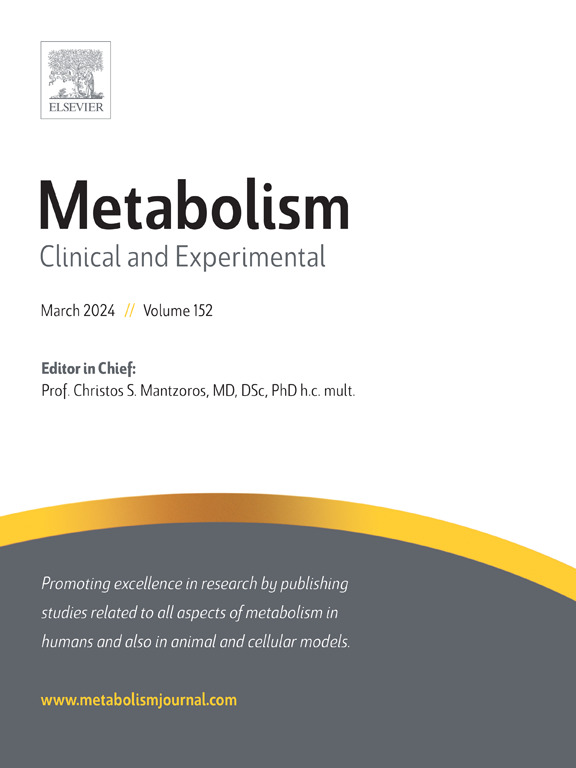The serine protease KLK7 promotes immune cell infiltration in visceral adipose tissue in obesity
IF 10.8
1区 医学
Q1 ENDOCRINOLOGY & METABOLISM
引用次数: 0
Abstract
Obesity is a major health problem associated with global metabolic dysfunction and increased inflammation. It is thus critical to identify the mechanisms underlying the crosstalk between immune cells and adipose tissue that drive cardiovascular and metabolic dysfunction in obesity. Expression of the kallikrein-related serine protease 7 (KLK7) in adipose tissue is linked to inflammation and insulin resistance in high fat diet (HFD)-fed mice. Here, we engineered mice with a macrophage-specific KLK7 knockout (KLK7MKO) to investigate how KLK7 loss impacts immune cell function and obesity-related pathology. Compared to control mice, we observed lower levels of systemic inflammation, with less infiltration and activation of inflammatory macrophages in HFD-fed KLK7MKO mice, particularly in the epididymal adipose tissue. Mechanistically, we uncover that Klk7 deficiency reduces pro-inflammatory gene expression in macrophages and restricts their migration through higher cell adhesion, hallmark features of macrophages in obese conditions. Importantly, through analyses of 1143 human visceral adipose tissue samples, we uncover that KLK7 expression is associated with pathways controlling cellular migration and inflammatory gene expression. In addition, serum KLK7 levels were strongly correlated with circulating inflammatory markers in a second cohort of 60 patients with obesity and diabetes. Our work uncovers the pro-inflammatory role of KLK7 in controlling inflammatory macrophage polarization and infiltration in visceral obesity, thereby contributing to metabolic disease. Thus, targeting KLK7 to control immune cell activation may dissociate adipose dysfunction from obesity, thereby representing an alternative obesity therapy.
求助全文
约1分钟内获得全文
求助全文
来源期刊

Metabolism: clinical and experimental
医学-内分泌学与代谢
CiteScore
18.90
自引率
3.10%
发文量
310
审稿时长
16 days
期刊介绍:
Metabolism upholds research excellence by disseminating high-quality original research, reviews, editorials, and commentaries covering all facets of human metabolism.
Consideration for publication in Metabolism extends to studies in humans, animal, and cellular models, with a particular emphasis on work demonstrating strong translational potential.
The journal addresses a range of topics, including:
- Energy Expenditure and Obesity
- Metabolic Syndrome, Prediabetes, and Diabetes
- Nutrition, Exercise, and the Environment
- Genetics and Genomics, Proteomics, and Metabolomics
- Carbohydrate, Lipid, and Protein Metabolism
- Endocrinology and Hypertension
- Mineral and Bone Metabolism
- Cardiovascular Diseases and Malignancies
- Inflammation in metabolism and immunometabolism
 求助内容:
求助内容: 应助结果提醒方式:
应助结果提醒方式:


